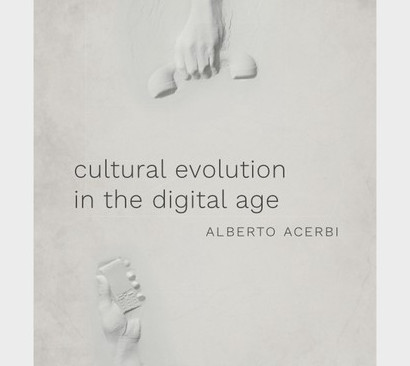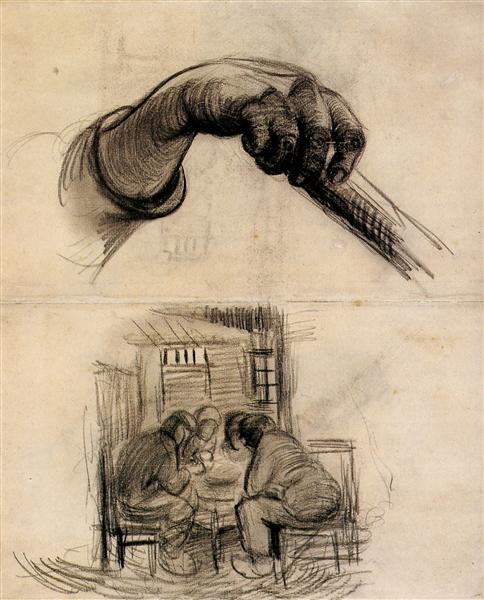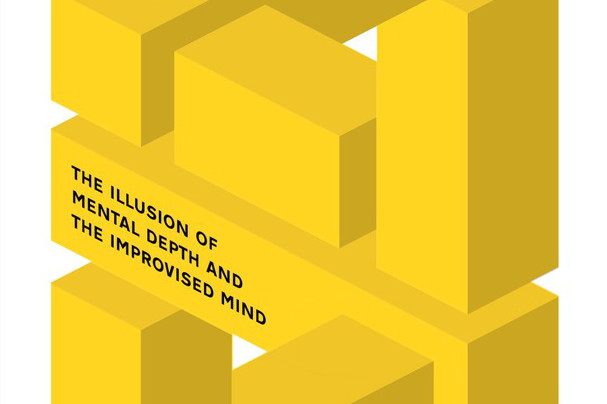“Cultural Evolution in the Digital Age” Book Club General Discussion
Join the discussion of our Book Club here!
You will find on the Book Club page: the précis of the book by Alberto Acerbi, commentaries by Alex Mesoudi, Hugo Mercier, Mathieu Charbonneau, Olivier
Alberto Acerbi’s response: There is much work to do
It was a great pleasure having a book club dedicated to Cultural evolution in the digital age. Writing a book feels like a long and solitary experience and it is comforting that, when done, it may
Truth is not always the point
Thank you, Alberto, for writing this book! In addition to being a captivating reading, it shed light on some thoughts I had on how people share information on social media, and what truth has to do
Cultural evolution – The mystery of production
Alberto Acerbi’s book is not just an impressive and timely summary of our knowledge of cultural transmission in the digital world (that in itself would be a good reason to read it). It also
The Participatory Age
Of central interest to Alberto, and to cultural evolutionists in general, are the impacts of the transmission of cultural information from one person to the next—what is transmitted to whom, where
Consuming vs. sharing information online
In his brilliant book, Alberto notes a series of significant differences between information sharing in oral cultures and online (to take two extremes). Oral cultures are dependent on memorization
Cultural transmission, reinvention, and progress
I sometimes wonder why some of the cleverest things about the digital age seem to date from before the digital age really started. Few philosophical analyses beat thought experiments like Turing's
What’s the recipe?
In his book, Alberto pointed out that information can now be passed on, and ultimately become cultural, without being memorized or even understood. But online information can also become cultural
Are humans ‘wary learners’?
I thoroughly enjoyed reading Alberto Acerbi’s Cultural Evolution in the Digital Age (Acerbi, 2019). It provides not only a much-needed corrective to overblown claims about the power of social media
A précis of ‘Cultural Evolution in the Digital Age’
When, at the beginning of 2016, I started to think about the project that would have become the book Cultural evolution in the digital age, my goal was to apply cultural evolution theory to a topic
‘Cultural Evolution in the Digital Age’ Book Club
Alberto Acerbi’s timely new book, Cultural Evolution in the Digital Age, offers a cultural evolutionary perspective on our behavior online, and on its cumulative effects on information diffusion
Board games, intuitive monopolists, and pedagogical Georgists
I grew up in socialist Romania and I have played Monopoly since I was 10 with a game brought from West Germany by family friends. I loved the game and the fact that my social value among playmates
Quiet online spaces as a form of mutualistic nudging for our hyper-networked world
On April 26, 2020, the Guardian published an article entitled “As isolation stress sets in, many find that sharing quiet online spaces is the key to boosting brain power.” It began,
“There are
Do COVID-19 conspiracy theories stem from gullibility or skepticism?
When it comes to the COVID-19 pandemic that has the world in its grip, gaps in public knowledge still abound. It is therefore not surprising that during the last weeks a whole bunch of ‘inte
Ubiquitous yet nowhere to be found: on the Invisible Hand’s success
Adam Smith’s invisible hand is a tremendously successful metaphor. Quotes abound to state how important and pervasive the idea is (and was) for both economics and social sciences at large. Yet,
How relevant to the psychology of mindreading is knowledge-first epistemology?
Some epistemic mental states with propositional content (e.g. knowing, perceiving, remembering) are commonly said to be factive on the grounds that one cannot know, see, hear or remember what is not
Could mindshaping be the bedrock of human social cognition?
The uniformity that unites us in communication and belief is a uniformity of resultant patterns overlying a chaotic subjective diversity of connections between words and experience. Uniformity comes
If teleology is the answer, what was the question?
Josef Perner is one of the leading developmental psychologists of mindreading (or mental state attribution). His contribution to the subject, including his influential (1991) book, has been huge. It
A natural experiment of gradual & contingent cultural causation
A new study about some old news, with results that demonstrate the promiscuous and highly contingent nature of cultural causation. In April 1989 Liverpool and Nottingham Forest were scheduled to
Ostension, insistence, and harassment
Last week, the “Social Minds: Coordination, Communication, and Cultural Transmission” project was having a five-day workshop at the Burn, a manor in the Scottish Highlands. Elizabeth Warren (a
How Jordan Peterson became an Intellectual Guru
I think I have discovered something that no one else has any idea about, and I’m not sure I can do it justice. Its scope is so broad that I can see only parts of it clearly at one time, and it is
Signalling signalhood as a means of protest
A few days ago Kazakh police detained a young man holding a poster in Abay Square in Oral, Western Kazakhstan. The poster, however, was blank, and Aslan Sagutdinov was later released without
Why read a big book? Quantitative Relevance in the Attention Economy
In a 2016 essay in the Chronicle of Higher Education that functioned as a teaser for her book Making Literature Now, Amy Hungerford, Professor of English, boldly revealed that she refused to
Are selves cultural attractors?
I have just finished reading Nick Chater’s The mind is flat: The illusion of mental depth and the improvised mind (Chater 2017), which
I think is an intriguing book. In contrast to popular












